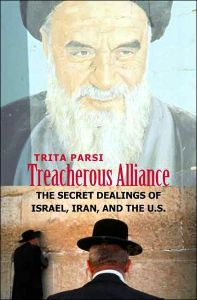
Recommendation
This is an exceptional look inside a diplomatic house of mirrors: the ongoing evolution of relationships among Iran, Israel and the U.S., and where their motives, rhetoric, realpolitik and military power converge. Trita Parsi’s sophisticated analysis of this complex, high-stakes, long-standing triad presents many surprises, perhaps even to those who think they know the inner workings of the Middle East and U.S. diplomacy. Parsi offers an advanced understanding of complicated modern diplomacy and insights about the future. His real expertise emerges in both history and analysis, though it is hard to know if his role as president of the National Iranian American Council may be a factor in his opinions. getAbstract advocates his book to anyone who wants to comprehend the doctrines and strategies behind Iran’s relations with the U.S. and Israel.
Summary
About the Author
Trita Parsi is president of the National Iranian American Council and adjunct professor of International Relations at Johns Hopkins University School of Advanced International Studies. He writes frequently about the Middle East and appears often on television as a news analyst.








Comment on this summary